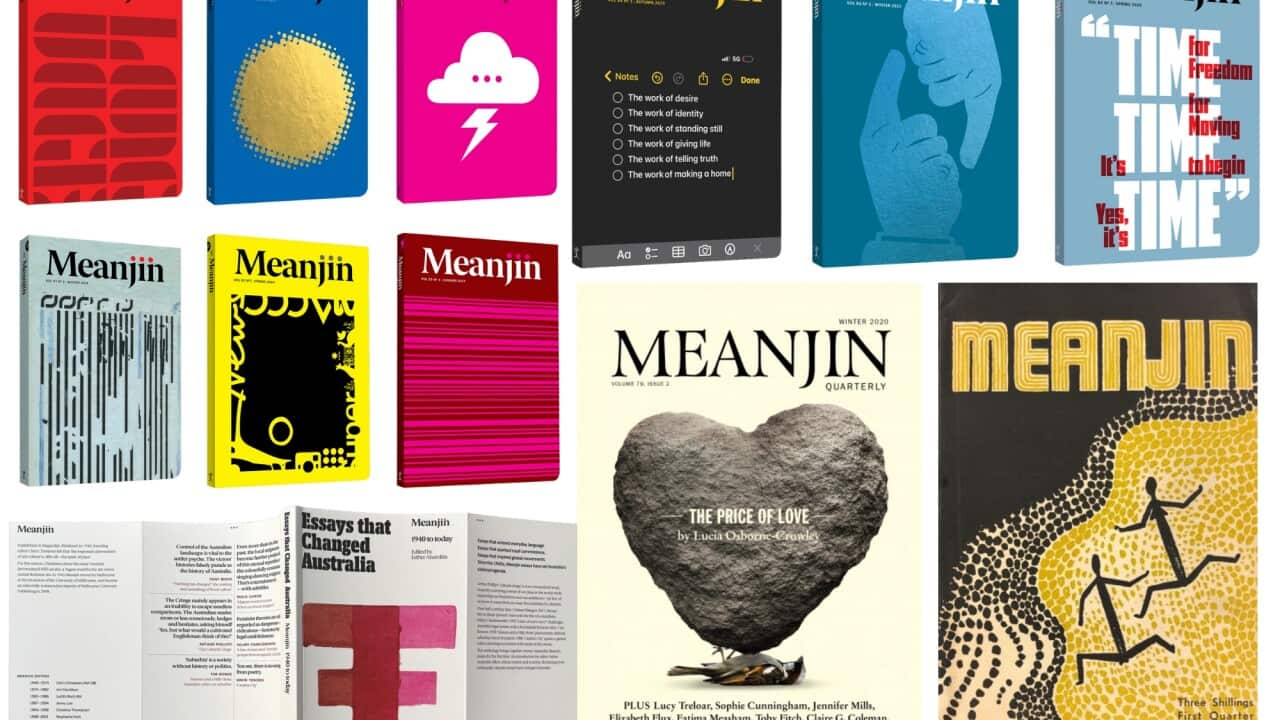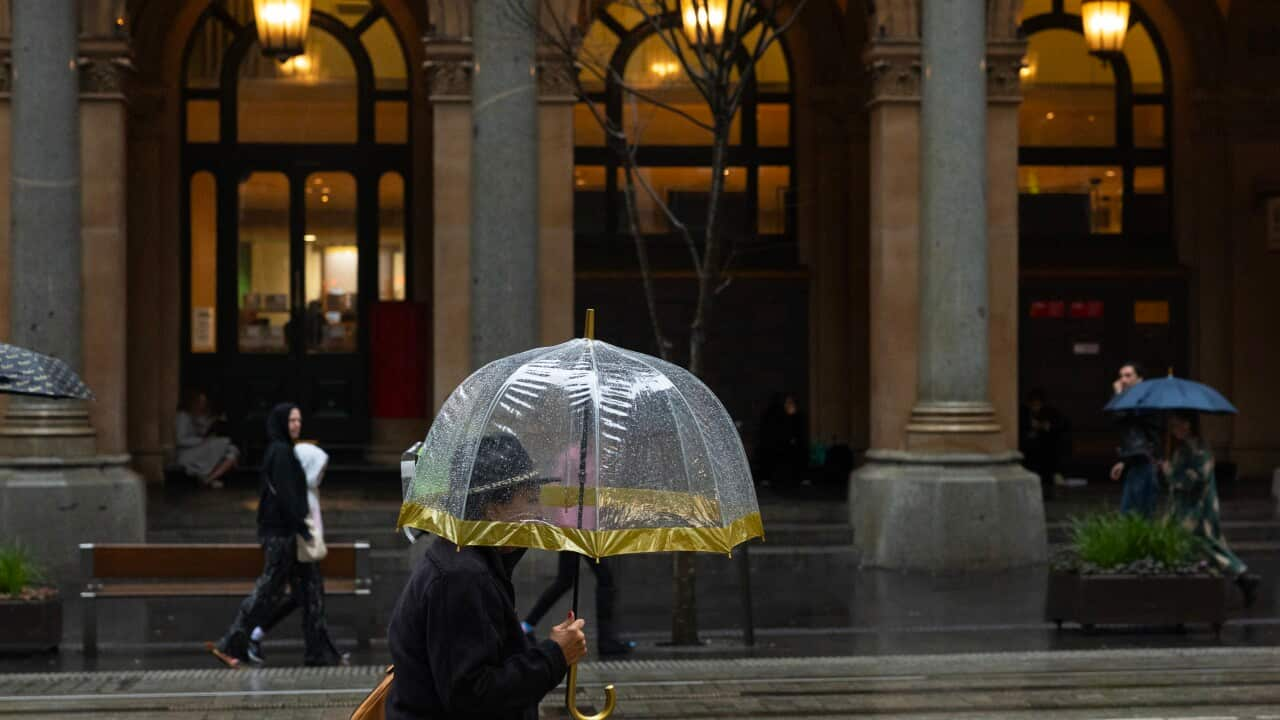Listen to Australian and world news, and follow trending topics with SBS News Podcasts.
TRANSCRIPT
After 85 years, one of Australia's oldest literary journals, Meanjin, will cease publication.
Founded in 1940 in Brisbane, the journal is the country's second oldest literary journal after the Southerly.
The journal's name comes from the local Indigenous Yuggera language - and refers to the site where central Brisbane sits.
Founding editor Clem Christesen said at the time, the name honours the importance of place in the development of culture.
In 1945, the journal's operations moved to Melbourne, after an invitation by the University of Melbourne.
And then in 2008, Meanjin became an editorially independent imprint of Melbourne University Publishing.
In a statement, Melbourne University Publishing says the Board decided financial constraints mean the final issue will be released in December.
The statement goes on to say that the two part-time staff of Meanjin were not involved in the decision.
The decision to close Meanjin has been widely criticised by many, including award-winning writers and prominent literary figures, including Louise Adler and author Sophie Cunningham.
As of Friday (5 Sept), more than 700 people have signed an open letter to the vice-chancellor of the University of Melbourne, Emma Johnston, to sacrifice 10 per cent of her salary to save the literary magazine.
SBS News has contacted Professor Johnston - and has not yet received a response.
Dr Jeanine Leane is a Wiradjuri writer, poet and academic, currently based in Melbourne.
For two-and-a half years, she was working as a poetry editor with Meanjin.
She says she has seen a vast number of diverse voices, in terms of poetry during her time at Meanjin.
"I found like I really had a free reign there to be adventurous, to cast out, and to make sure to cast my eye very, very broadly across and to publish a really diverse culturally linguistically, socially and politically diverse range of palettes in that space."
Dr Leane talks about the shift that happened in 1977 for First Nations communities.
"That first issue in 1977 did really evidence a shift, a cultural shift in the nation. And (Jim) Davidson put together this anthology in 1977, First Nations writing today, which was a collection from which the time was one of the early journals to showcase Aboriginal and Torres Strait Islander voices nationally."
She says its been an important space in historically and culturally for First Nations cultural expression.
"Meanjin has had that very strong commitment to First Nations writings, cultural and sociopolitical expression ever since that time. And arts and culture. Esther (Anatolitis) was a great arts and culture advocate, and when she became the 12th editor of Meanjin in late 2022, she established a literary and cultural advisory board."
Dr Jeanine Leane says the cultural advisory board was filled with Indigenous and culturally diverse writers and thinkers.
It centered on increasing First Nations writing and publication, as well as honouring elders and recognising the work that has been done historically, particularly in the early days of the publication.
Dr Jeanine Leane says the decision to close Meanjin will have serious and severe consequences for Australian writers and their audiences.
"It is cultural pillage. A real - it is a type, if you like - I deliberately use that word editing and national consciousness in a way. It's a way of enforcing, I suppose, shutting down a whole lot of voices. So in many ways it's a form of censorship. Shutting down an avenue for a lot of voices is a form of censorship."
She says the absence of the journal will also remove an important forum and community to develop and nurture Australian storytellers.
"And it's one less space; one more space taken away from us as a minority, but a minority but very prolific and very articulate community. It was one more safe space that we had that is now being taken away from us."
Carody Culver who's the editor of the literary Journal, Griffith Review, says the contribution of the journal has been seminal in the development of Australia's literary scene.
"It's really devastating news. Griffith Review - we've had a long standing allyship with Meanjin Esther Anatolitis, the current editor, and what a wonderful advocate she is for arts and culture in Australia. And Meanjin, it's one of the country's most pre-eminent literary journals. It's the second oldest - was established in 1940, and over the last eight and a bit decades, it's published incredible work. I mean, the journal is responsible for giving us the phrase 'cultural cringe', which has become so embedded in the Australian lexicon. It's been an incredible platform for emerging and established writers and for First Nations writers as well."
She says the resource and benefits provided by the journal enriches the nation.
"Journals are wonderful platforms for writers at all stages of their careers. And in order to be able to run journals, having institutional support from somewhere like a university is incredibly valuable. So I know from my own experience of being editor of Griffith Review. We receive support from Griffith University as well as organisational funding from Creative Australia. And that's so vital to us. And this notion that some people have that literary journals should be expected to generate revenue - that's not what we're here for."
Ms Culver says she remembers the inspiration Meanjin provided when she was doing her PhD about 15 to 20 years ago.
"The expansiveness of the ideas that you would find in its pages and the fact that it had this incredibly rich, rich history and that it had contributed to our intellectual life, our intellectual culture over such a long period. So for the time that I was at my career at that stage, early on trying to establish a name to myself and trying to find the right career pathway for the editorial work that I wanted to do. Meanjin was quite a beacon for me."
Ms Culver says she has written a piece about the role and importance of literary journals in the upcoming 85th edition of Meanjin.
She says journals are really good at navigating the unpredictability and the complexity of contemporary publishing, which caters to dedicated audiences of readers and writers.
"My piece in Meanjin is really just a reflection on why journals are important and why it can sometimes feel - be a bit challenging to fearlessly or constantly having to justify the reason that journals should exist."
She says we have many wonderful publications in Australia that are helping to platform the work of new voices and established voices - but the absence of Meanjin will be felt.
"Knowing, knowing what I know now that Meanjin will no longer exist after this 85th edition has come out, it's, it's really heartbreaking."
Ms Culver says it's been really lovely to see the huge outpouring of support on social media, as well as news articles on the closure of Meanjin.
"I hope that we can keep talking about this and that we can always remember Meanjin and that maybe one day in some way, shape or form, it can be returned to us."













